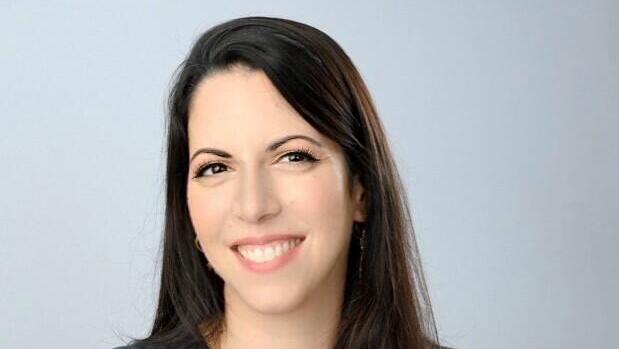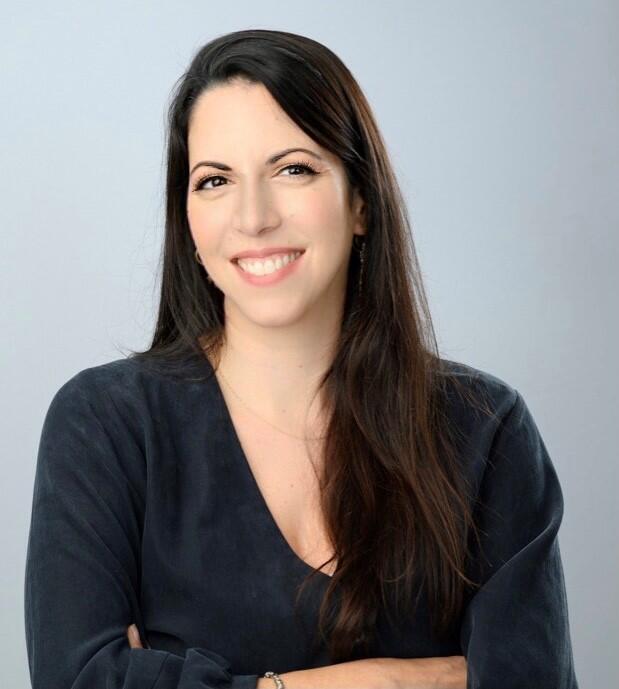
What's next?
"Now is the time to focus on your customers, efficiency and durability. Keep a close eye on the market"
Renana Ashkenazi, General Partner at Grove Ventures, spoke with CTech as part of the project “Where do we go from here?”, which aims to examine how the Israeli VC industry is dealing with the crisis in the sector
“While growth was the name of the game when the market was in a frenzy, these days efficiency and durability are probably the right things to focus on. Now is the time to focus on your customers,” says Renana Ashkenazi, General Partner at Grove Ventures, in a conversation with CTech as part of the project “Where do we go from here?”, which aims to examine how the Israeli VC industry is dealing with the crisis in the sector.
Ashkenazi stressed that the new economic environment has forced a change in priorities for many customers: “Solutions and products that were required before may no longer be relevant, or such is the price point we imagined. Iterate your assumptions again. And then again,” she said.
Over recent months, we have witnessed one of the most serious crises to hit Israeli high-tech in recent decades: on the one hand, a global economic slowdown, and on the other hand, local political turmoil that sent the industry into deep stagnation. Since the general assumption is that the situation will not change in the near future, the question hovering over the industry is what can still be done to minimize the damage to the Israeli high-tech industry and how should we act so that when the crisis passes - all those involved can take a leap forward. Therefore, as part of this on-going project, we spoke with senior executives from the local venture capital industry to try and understand from them what needs to be done now to justify the reputation Israeli high-tech has earned as being creative, adaptive, innovative, agile and cunning.
Name of fund/funds: Grove Ventures
Total sum of fund: $500M AUM
Partners: Dov Moran, Lotan Levkovitz, Renana Ashkenazi, Lior Handelsman
Notable/select portfolio companies: Wiliot, ActiveFence, ProtAI, Navina, Nucleai, Neuroblade.
"Even Sam Altman doesn’t know how long the slowdown will last"
How is the current crisis different from the ones we experienced in previous decades?
“Perhaps the most significant characteristic of the current economic crisis is that it is fueled by a (misfortunate) combination of various factors; it’s not simply a stock market crash or the result of some contained geopolitical tension. It’s exacerbated by the collision of the aftermath of COVID, rising inflation (currently at decades-record high) and interest rates, the war in Ukraine and its global implications (energy prices have surged, global trade is compromised - even bread is now more expensive due to our wheat dependency on Ukraine), the US-China tension and the list goes on.”
How long do you think the global economic slowdown will last?
“I’m willing to bet that even Sam Altman doesn’t have the answer to this one. It’s practically impossible to accurately predict how long the slowdown will last - the combination of factors contributing to the slowdown is probably an indicator that it will take time to recover, at least until the end of the year. The war in Ukraine, rising inflation, and supply chain disruption have already caused The International Monetary Fund (IMF) to downgrade its global growth forecast for 2023. But the relatively proactive approach that governments and central banks are taking in response to this crisis could be a sign that there is room for optimism. I’d cautiously say that 2024 is expected to be a brighter year.”
Are there positive sides to this crisis?
“100%. It’s the oldest cliché in the book, but challenging times are always a fertile ground for innovation. They force us to be creative, to move fast, to be better and faster and cheaper and more efficient. The current crisis has created huge amounts of chaos and a lot of things have broken - but a lot of new behaviors, technologies and opportunities will emerge as well.
“High interest environments have been known to create healthier companies that can build and create actual value from an earlier stage and grow over time.
“More tactically, there are more investment opportunities as companies are looking for funding, and valuations are a closer reflection of those companies’ actual value. We are also seeing an increased focus on innovation, as customers are looking for more ways to save money, increase efficiency or generate new revenue streams. Last but not least, there is a massive pool of great available talent that can be a real game changer for companies.”
What are the critical points in which Israeli high-tech was damaged?
“Israeli high-tech, like other developed economies, has been impacted in several ways. In terms of human capital, we’ve seen both layoffs (over 1,000 employees in the first half of the year alone) as well as much slower hiring than we’ve seen in the peak of 2021. Public market valuations have plummeted, and Q1/2023 was the weakest quarter in capital raising since 2018. Foreign investors have reduced the amount of capital they deploy here, and M&A activity has slowed down. However - the Israeli economy and high-tech sector have already proven resilience in times of crisis, were and will continue to be a major force in the global economy. Accounting for 10% of the GDP as of 2022, the industry is well-positioned to recover from this challenging time and come out as strong as ever.”
How should each and every one of these problems be handled?
“A collaboration of government, industry and even academia can help address some of the challenges the ecosystem is experiencing. Tech collaborations (sharing resources and expertise), government support (tax breaks and grants) and increased efficiency can help companies survive the next couple of quarters. Save where you can, spend where you must – and be as creative as possible when it comes to extending your budget. Also, in the midst of this significant crisis we are also experiencing one of the most revolutionary moments in technology the world has witnessed in decades; where the magnitude and pace of breakthrough technology releases is breaking records. Companies should continuously look for ways to use that to their advantage.”
How can you take advantage of this interim period (until the crisis passes) to prepare better for the reawakening when it arrives.
“While growth was the name of the game when the market was in a frenzy, these days efficiency and durability are probably the right thing to focus on. Now is the time to focus on your customers – maintaining a close eye on the market, your customers’ needs and constraints. Customers’ budgets are tight, so you want to make sure you are not the product/service that doesn’t make the cut. Cost reduction and high efficiency are obvious in times of downturns but it doesn’t just mean going for the less known brand in the chocolates you buy to the office – now is a good time to negotiate with your vendors, to consider redesigns that could lower your cost and take a look at your cloud bill.
“Generative AI is booming in almost every aspect relevant to any business – it has endless implications but most importantly, it means there is so much more we can do for so much less. Sales, marketing, BI and support – there’s a free (ish) tool out there that can help you do it, and if there isn’t – tomorrow there will be. Tome will create a perfect layout for your presentation (and build it as well), Jasper or Microsoft designer will help you create content for social media, advertising, blog posts, emails, website. The list is endless.
“Listen to the market. This new economic environment has forced a change in priorities for many – solutions and products that were required before may no longer be relevant, or such is the price point we imagined. Iterate your assumptions again. And then again.”
Related articles:
What are the critical points in which the Israeli venture capital industry was hit?
“VC funds have felt implications across the portfolio. Growth funds have witnessed significant valuation decreases, while the early-stage funds have found themselves very focused on securing follow-on rounds for existing portfolio companies. While the overall number (and dollar amount) of deals has decreased, the more meaningful impact was felt in the growth rounds, where valuations more closely reflect public market multipliers. In the earlier stages, the questions investors ask themselves have stayed pretty much the same – is the team strong, is the vision clear, is the addressable market large enough and do I believe in the long term gain.”
How should the venture capital industry conduct itself in the immediate and medium term?
“If there’s one thing that venture capitalists understand is the cycles of the market. We know that every 2021 has its 2023… Now is the time for investors to be supportive, both financially – some companies will need help where we didn’t expect them to – as well as emotionally. This year took the entrepreneurial rollercoaster to the next level.
“Investors should probably be a (bit) more selective; tight economic times mean that customers are more careful and more thoughtful with what and how much they spend. Budget frameworks are changing, and priorities are shifting. Nice-to-have products that had huge potential a couple of years ago, are making room for the must-haves and the infrastructure level solutions.
“More than anything, investors and entrepreneurs should be patient. Even in the best of environments, most startups take time to succeed. Now is a good time to adjust expectations as to how much time and money it will take to create success and provide the portfolio companies with the support and backing they need.
“Now is also the time for investors to be pragmatic and flexible to both adjust investment strategies as well as take advantage of new opportunities, and there are plenty of those. The Nvidia CEO recently said we are “living in the iPhone moment of AI”. LLMs with extraordinary power, combined with simple UI became available to anyone who wants to play with them. The billions of people that were handed the power of an advanced processor with the iPhone, now have the power of AI – and the world of endless opportunities this opens is almost unimaginable.”
